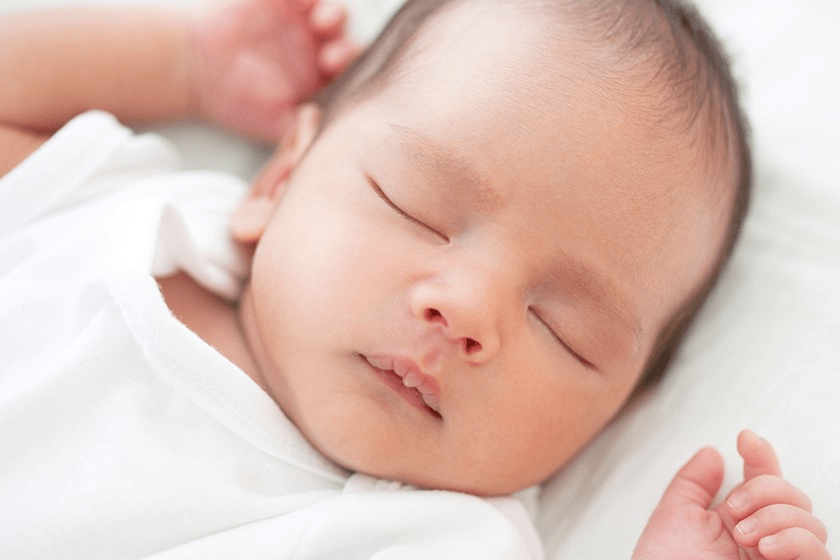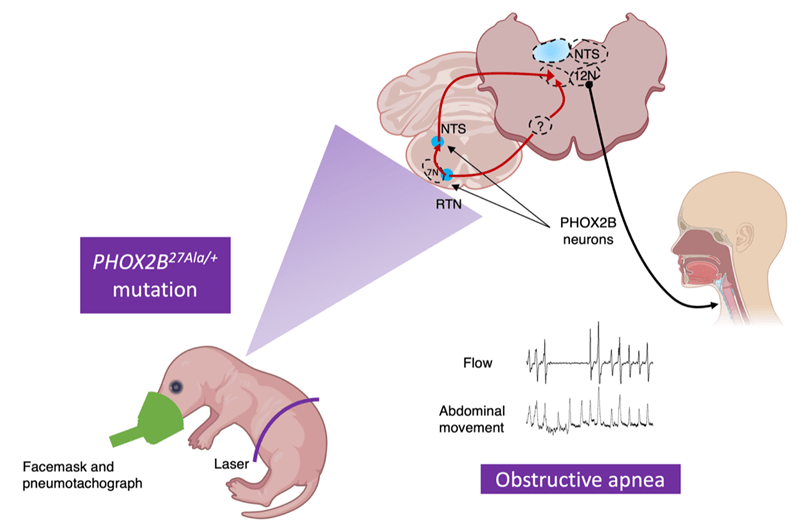The “Mood” research axis of the SleepCmd team is dedicated to understanding the intricate links between sleep, circadian rhythms, and mood disorders such as depression, bipolar disorder, seasonal affective disorder, and suicide. Using state-of-the-art methods, the team explores how disruptions in sleep-wake cycles contribute to the onset, progression, and treatment of these disorders. This research aims to personalize psychiatric care by identifying novel biomarkers and refining therapeutic approaches. The team has developed an expertise in innovative medical devices and solutions, with collaborations with private industrials to validate these solutions and benefit from new tools to better unravel physiopathological dimensions.

© NeuroDiderot
Research Objectives
- Pathophysiological Insights: Explore the central role of sleep and circadian rhythms in mood disorders, from their contribution to symptomatology and relapse risk to their interactions with other physiological systems.
- Biomarker Discovery: Develop sleep and circadian biomarkers to improve diagnostic precision and therapeutic targeting, leveraging innovative methodologies like actigraphy, polysomnography, and melatonin assays.
- Therapeutic Innovation: Evaluate chronotherapeutic strategies, including light therapy, melatonin supplementation, and cognitive-behavioral therapy for insomnia and nightmares, to enhance treatment personalization.
We aim to continue to develop a better understanding of both manifestations, clinical course, sleep comorbidities, etiopathogenesis and response to treatments in mood disorders. This fast-growing sleep field of interest is also paving the way to a better personalized medicine in psychiatry, which is seriously lacking.
Depression, bipolar disorders, seasonal affective disorders, and suicide are studied as sleep/wake and chronobiological disorders using objective tools (actigraphy, polysomnography, EEG, ERG, Pupillometry, MRI) and subjective tools (Sleep logs, apps, questionnaires, etc.). These research and findings already allowed us to propose new pathophysiological models and scientific frameworks. Beyond these categorical approaches within mood spectrum disorders, we are also interested in examining more transdiagnostic physiological dimensions such as dreams/nightmares, sleep apnea/sleep breathing, hypersomnia and insomnia. These categorical and physiological dimensional approaches are used to better unravel clinical trajectories (development, recurrences, therapeutic responses) and use translational approach with pre-clinical research in mice and depression-like models (collaboration P Bourgin and T Serchov, INCI Strasbourg, CNRS; and C Henry, Pasteur). Finally, we also aimed to develop new chronotherapeutics in mood disorders (digital CBT-I, RIM, light therapy protocols, ChronoS therapy for mood disorders) and started several new projects assessing the efficacy and looking at response biomarkers of these chronotherapeutics (including PHRC CombiChronos and ANR SoLuRep).
National and International Collaborations
The team coordinate the French network named “SoPsy” (sleep and biological rhythms in psychiatry) of the French Association of Biological Psychiatry and Neuropsychopharmacology (AFPBN) and the French Society for Sleep Research and Medicine (SFRMS).
This expert network includes >40 centers who contribute to a national cohort about depression (with three grants from the SFRMS, from Fondation de l’Avenir, and from APRESAM) and defined a common dataset with standardized questionnaires. The SoPsy network will allow to better structure the psychiatry research axis and participate in national, European and international funding programs and open calls.
Finally, we also collaborate with ongoing projects and students:
- Circadian Mental Health Network (https://www.circadianmentalhealth.org/), which is an international collaboration between researchers, clinicians, patients and the public which is focused on driving discovery and innovation at the interface of sleep, circadian rhythms and mental health.
- the EU SLEEP REVOLUTION project (https://sleeprevolution.eu/en/home/), which is introducing an approach based on machine learning to assess sleep apnea severity and treatment needs
- the Chronobiology and Chronotherapy of Bipolar Disorders task force of the international society of bipolar disorders (ISBD)(https://www.isbd.org/active-task-forces)
Key Publications
- Geoffroy, PA ; Oquendo, MA ; Courtet, P ; Blanco, C ; Olfson, M ; Peyre, H & al. Sleep complaints are associated with increased suicide risk independently of psychiatric disorders: results from a national 3-year prospective study. Mol Psychiatry 2021. PMID: 32355334
This prospective study demonstrates for the first time that sleep disturbances independently predict suicidal risk, regardless of psychopathology or other known suicide risk factors. This has a direct impact on strategies for screening suicidal crises and assessing suicidal risk.
- Maruani, J ; Stern, E ; Boiret, C ; Leseur, J . Romier, A ; Lejoyeux, M ; Geoffroy PA. Predictors of cognitive behavioral therapy for insomnia (CBT-I) effects in insomnia with major depressive episode. Psychiatry Res 2023. PMID: 35581322
This original study demonstrates that CBT for insomnia is equally effective in patients with depression and also helps alleviate depressive symptoms. It is also the first study to identify predictive factors of response and non-response to CBT-I. These markers are directly useful for clinical practice.
- Maruani, J ; Mauries, S ; Zehani, F ; Lejoyeux, M ; Geoffroy, PA. Exploring actigraphy as a digital phenotyping measure: A study on differentiating psychomotor agitation and retardation in depression. Acta Psychiatr Scand 2024. PMID: 39030838
This study demonstrates that actigraphy is an effective digital phenotyping tool for distinguishing between slowed and accelerated depressions, a distinction that is often challenging in practice. The therapeutic implications of this distinction are significant, as these patients require specific treatment approaches and should not be treated uniformly.
- Geoffroy, PA ; Borand, R ; Ambar Akkaoui, M ; Yung, S ; Atoui, Y ; Fontenoy, E & al. Bad Dreams and Nightmares Preceding Suicidal Behaviors. J Clin Psychiatry 2022. PMID: 36416752
This original study demonstrates for the first time that 80% of patients hospitalized for a suicidal crisis (suicidal ideation with immediate intent or suicide attempt) experience changes in their dreams in the preceding months, with a progression from bad dreams to nightmares and ultimately to suicidal scenarios.
- Ambar Akkaoui, M ; D’ortho, MP ; Gourevitch, R ; Pham-Scottez, A ; Benhamou, P ; Atoui, Y ; Lejoyeux, M ; Geoffroy, PA. A study of nightmares in patients with psychiatric disorders. Psychiatry Clin Neurosci 2022. PMID: 34878189
This original study demonstrates that chronic nightmares are very common among patients with psychiatric disorders (affecting more than one-third) and significantly impact psychiatric symptoms as well as overall functioning.
Read more

Sleep2Develop research program
The Sleep2Develop program investigates the role of sleep as a promotor of neurodevelopment and identifies the sleep determinants of childhood development. This is rephrased as Sleep(to)Develop? or Sleep(to)Develop! Our sleep research combines clinical and...

Research program on CCHS
CCHS is a disease characterized by a congenital impairment of the central control of breathing, associated with dysfunctions of the autonomic nervous system (ANS) (Gallego, 2012). At birth, patients have severe and persistent hypoventilation during sleep and a...

Breaking news for Central Congenital Hypoventilation Syndrome
In collaboration with Dr. Muriel Thoby-Brisson (Université de Bordeaux, Institut de Neurosciences Cognitives et Intégratives d’Aquitaine, CNRS), and thanks to Fondation Air Liquide, Association Française du syndrome d'Ondine and start-up company ATMOSR, team NeoPhen...

